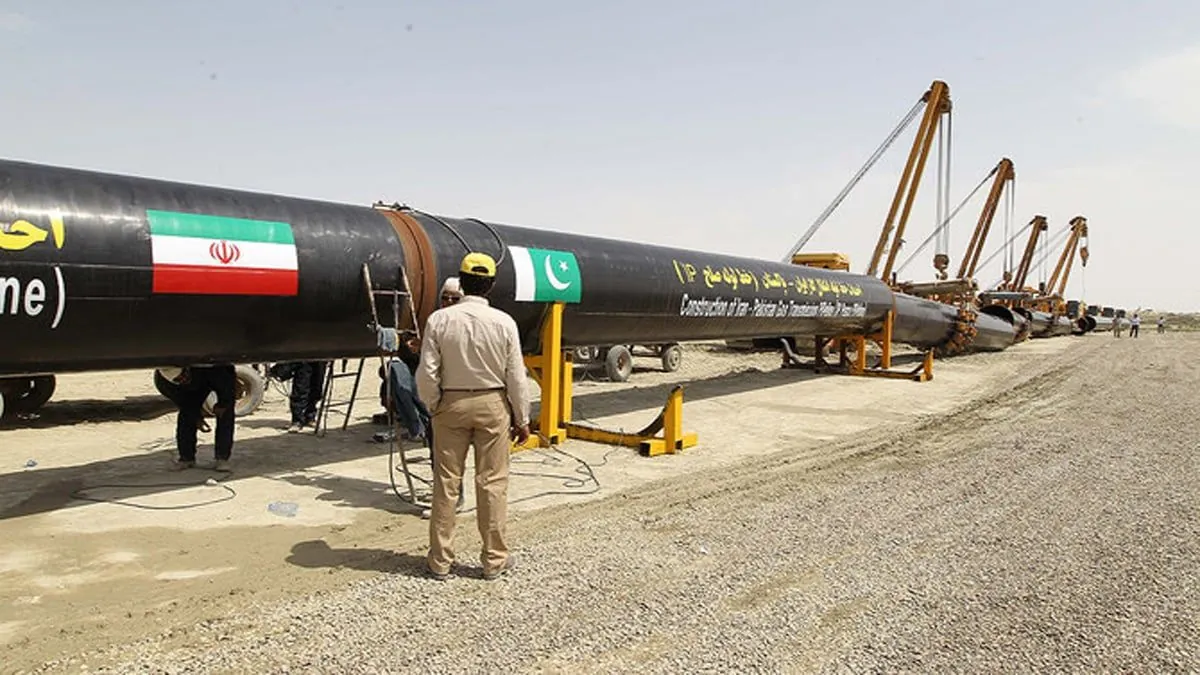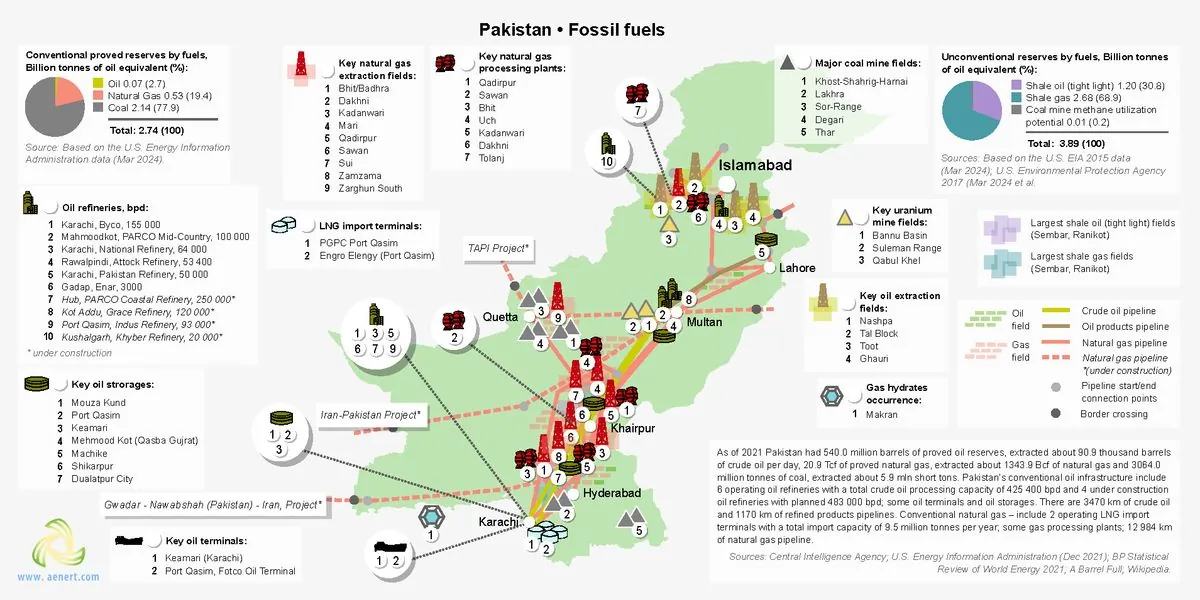Iran Threatens Legal Action Against Pakistan Over Delayed Gas Pipeline
Iran plans to take Pakistan to arbitration over a long-delayed gas pipeline project. The dispute highlights Pakistan's geopolitical and economic constraints, as well as its energy security challenges.

Iran has announced its intention to initiate arbitration proceedings against Pakistan in Paris due to the prolonged delay in constructing a cross-border natural gas pipeline. This development underscores the complex geopolitical and economic challenges facing Pakistan.
The pipeline project, initially conceived in 1995 and formalized in 2009, aimed to address Pakistan's chronic energy shortages. Iran completed its 684-mile portion in 2012, while Pakistan has yet to begin work on its 485-mile segment. The project could potentially supply Pakistan with 750 million to 1 billion cubic feet of natural gas daily, a significant boost considering Pakistan's reliance on natural gas for about 45% of its primary energy supply.
Pakistan's hesitation stems from concerns about potential U.S. sanctions and the risk of upsetting its ally Saudi Arabia, Iran's regional rival. Despite a recent rapprochement between Saudi Arabia and Iran, tensions between Washington and Tehran have escalated, making a U.S. sanctions waiver unlikely.
Pakistan's limited global influence and economic vulnerabilities constrain its options. Unlike India, which has managed to develop projects in Iran without facing consequences, Pakistan lacks the diplomatic clout to secure similar concessions. The country's dependence on international financial institutions, such as the International Monetary Fund, further complicates its decision-making.

Failure to complete the project could result in penalties of up to $18 billion for Pakistan. Negotiations are underway between Islamabad and Tehran to find a workable solution. Experts suggest that Pakistan should consider negotiating a lower, affordable penalty and explore alternative energy sources, such as gas contracts from Qatar.
In other regional news, Indian Prime Minister Narendra Modi made historic visits to Brunei and Singapore. These diplomatic efforts reflect India's strategic relationships in Southeast Asia and its ambition to strengthen ties with countries in the eastern Indo-Pacific region.
Meanwhile, protests continue in India, particularly in Kolkata, following the tragic killing of a trainee doctor. Demonstrators are demanding accountability and reforms in the healthcare sector and law enforcement.
Bangladesh is grappling with severe floods affecting 5.6 million people, adding to the challenges faced by its interim government. The floods, described as the worst in eastern Bangladesh in 34 years, come on the heels of a cyclone in May, highlighting the country's vulnerability to climate change effects.
Lastly, a concerning report reveals that at least 40 Nepali citizens have died while fighting for Russia in Ukraine. The actual toll may be higher, with DNA tests underway for more than 50 suspected casualties. This situation reflects the economic pressures facing Nepal, which ranks 147th out of 191 countries in the UN's Human Development Index.
"We are deeply concerned about the reports of Nepali citizens being recruited to fight in the conflict. We urge our citizens not to participate in any foreign conflicts and are working to bring those affected back home safely."
These developments underscore the complex interplay of energy security, geopolitics, and economic challenges facing South Asian nations in an increasingly interconnected world.


































